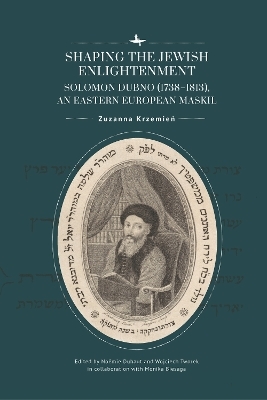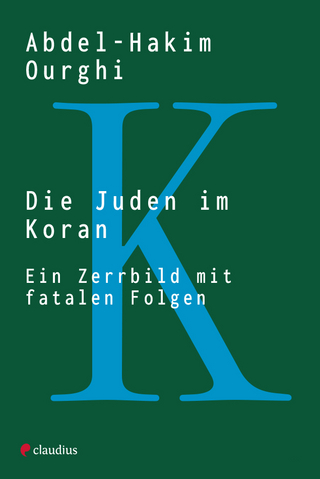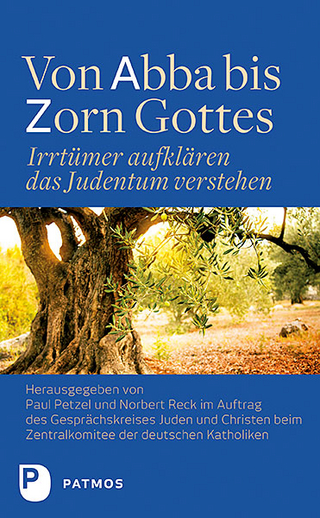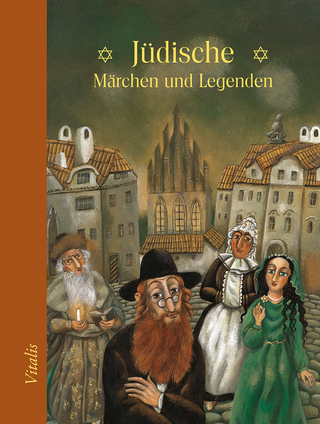
Shaping the Jewish Enlightenment
Academic Studies Press (Verlag)
979-8-88719-391-5 (ISBN)
Drawing from diverse multilingual sources, Krzemień delves into Solomon Dubno's life (1738–1813), unraveling complexities of the Haskalah movement's ties to Eastern European Jewish culture. Dubno, a devout Polish Jew and adept Hebrew grammarian, played a pivotal role in Moses Mendelssohn's endeavor to translate the Bible into German with a modern commentary (Biur). The book explores Dubno's library, mapping the intellectual realm of a Polish Maskil in Western Europe. It assesses his influence on Mendelssohn's project and the reasons behind their divergence. Additionally, it analyzes Dubno's poetry, designed to captivate peers with the Bible's linguistic beauty. The outcome portrays early Haskalah as a polyvocal, polycentric creation shaped by diverse, occasionally conflicting, visions, personalities, and egos.
Zuzanna Krzemień (1987-2021) received her doctorate from the Hebrew and Jewish Studies Department at University College London. She held fellowships from the Posen Foundation and the YIVO Institute for Jewish Research, and served as the curator of East European collections in the British Library in London. Noëmie Duhaut is a research associate at the Institute of European History in Mainz, Germany. She is currently finishing a book manuscript on Jewish internationalism in the context of post-Ottoman state-building in the Balkans. Her second book project is a biography of the nineteenth-century French Jewish leader Adolphe Crémieux. Her work has appeared in French Historical Studies, European History Yearbook and Archives Juives. Wojciech Tworek is assistant professor in the Taube Department of Jewish Studies at the University of Wrocław. He is the author of Eternity Now (SUNY, 2019) which examines the teachings of Shneur Zalman of Liady, the founder of Chabad Hasidism. Currently he is completing a book on the Chabad community in interwar Poland and – together with Marcin Wodziński – an anthology of Hasidic stories. Monika Biesaga studied Information and Library Science, and Jewish Studies at the Jagiellonian University in Krakow. In 2021 she received her PhD from the Jagiellonian University with a historical study on Jewish libraries in interwar Poland (1918-1939). Apart from the history of Jewish libraries, her research interests include also the fate of Jewish book collections after the Second World War.
A Note from the Editors
Preface: Zuzanna Krzemień at University College London
A Note on the Presentation of Source Materials
Introduction
Eastern European participation in the Jewish Enlightenment: the lessons of one life
A Jewish scholar's life between Volhynia, Berlin, and Amsterdam
Re-orientations: the scope and limits of Jewish intellectual transformation in the Age of Enlightenment
Dubno, Hebrew Literature, and the Haskalah
Chapter outline
1. Solomon Dubno's Booklists
Introduction
Book collecting in early modern times
The content of Solomon Dubno’s library
General overview
Methods of book collecting
Maskilic works
Non-Jewish books and works on Christianity
Rabbinic literature
Authors with the largest number of books in Dubno’s booklist
Philosophy
Poetry and belles lettres
History and contemporary Jewish conflicts
Grammar
Science
Dubno’s collex
Conclusion
2. Dubno and the Biur Project
The publication of the Biur
The conflict between Mendelssohn and Dubno
Dubno’s role in the publication of the Biur
The authorship of Alim li-terufah
The Biur and the Jewish tradition of biblical textual criticism
The Biur as a debate with Christianity
The reaction to the publication of the Biur
Speculations regarding Dubno’s withdrawal from the Biur project
Dubno’s own Pentateuch edition
Conclusion
3. Dubno and the Renewal of Hebrew Language
The study of Hebrew grammar among Ashkenazi Jewry
Dubno’s views on Hebrew grammar
The status of the Hebrew language in the maskilic community
Enlightenment thinkers’ views on language
Dubno’s belief in the divine nature of Hebrew
Dubno’s view of the German Pentateuch translation
Conclusion
4. Dubno’s Poetry and Belles Lettres
Introduction
Maskilic Hebrew poetry in the eighteenth century
“Yuval ve-Na’aman”
Dubno’s poetry
Works wrongly attributed to Dubno
Conclusion
Conclusions
Bibliography
Appendix
Se’u enekhem
Shir kashur min me’ah yetedot
Shir na’eh al midat ha-ḥanupah
| Erscheinungsdatum | 18.11.2023 |
|---|---|
| Co-Autor | Monika Biesaga |
| Zusatzinfo | Illustrations |
| Verlagsort | Brighton |
| Sprache | englisch |
| Maße | 155 x 233 mm |
| Gewicht | 526 g |
| Themenwelt | Geisteswissenschaften ► Religion / Theologie ► Judentum |
| Geisteswissenschaften ► Sprach- / Literaturwissenschaft ► Anglistik / Amerikanistik | |
| Geisteswissenschaften ► Sprach- / Literaturwissenschaft ► Literaturgeschichte | |
| Geisteswissenschaften ► Sprach- / Literaturwissenschaft ► Sprachwissenschaft | |
| Sozialwissenschaften ► Soziologie ► Spezielle Soziologien | |
| ISBN-13 | 979-8-88719-391-5 / 9798887193915 |
| Zustand | Neuware |
| Haben Sie eine Frage zum Produkt? |
aus dem Bereich


